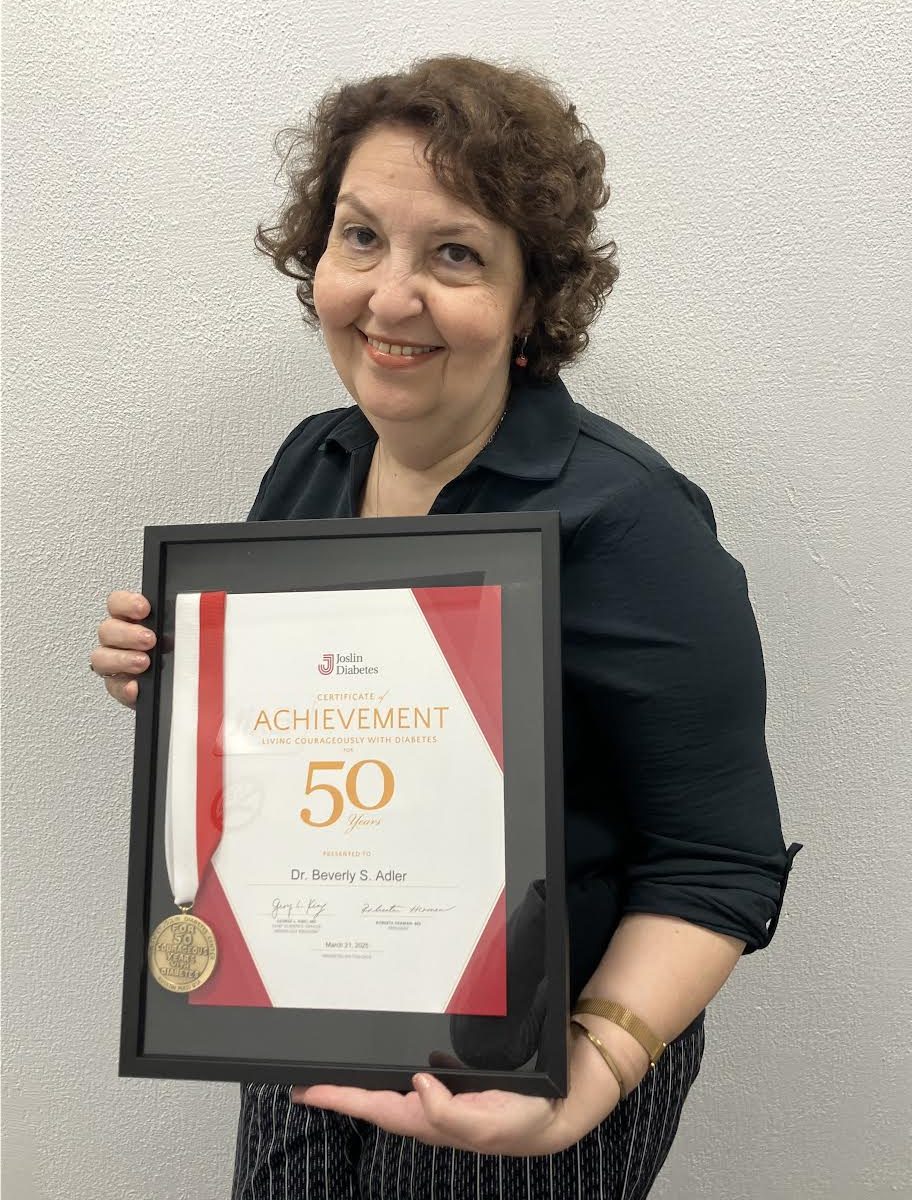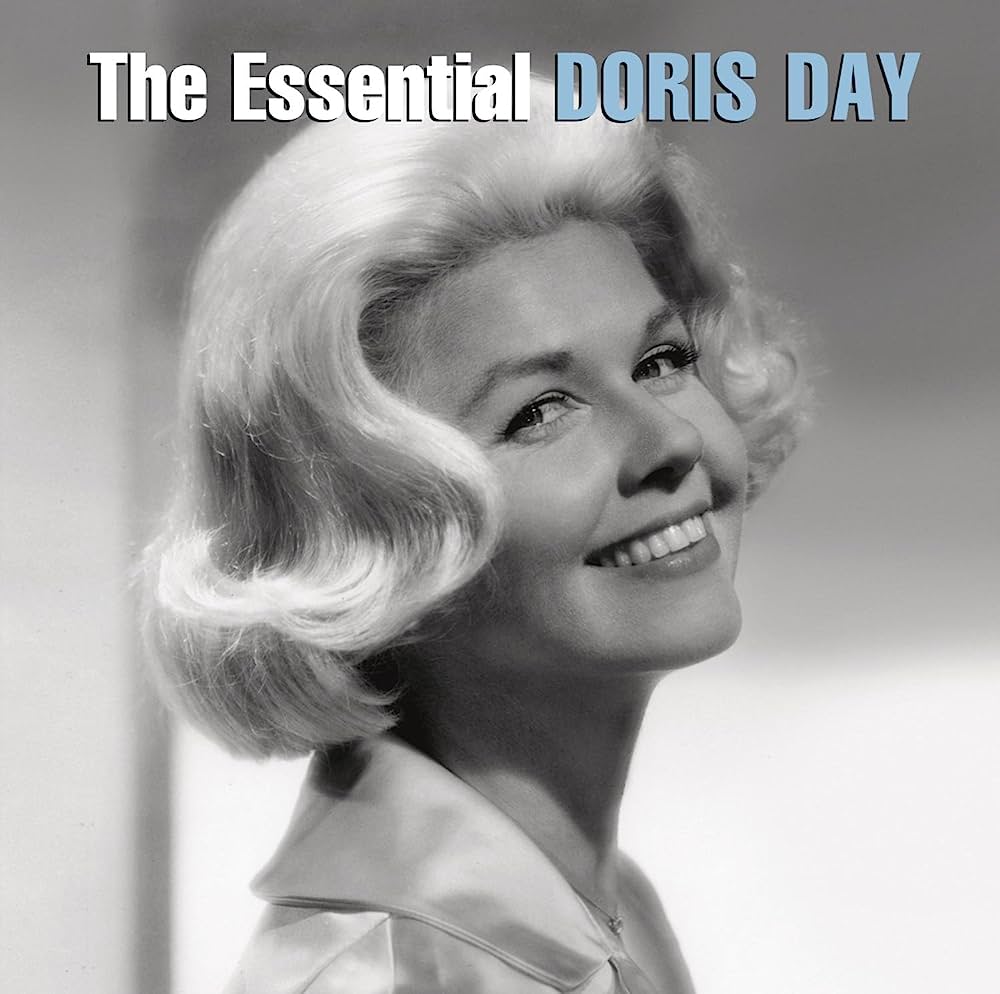Our friend, clinical Psychologist and Certified Diabetes Care and Education Specialist, Dr. Beverly S. Adler, PhD, CDCES, proudly displays her 50-Year Award and Medal for living with type 1 diabetes, presented by the Joslin Diabetes Center in Boston.
Dr. Bev has appeared at multiple Divabetic events and on podcasts, including a series that addresses the emotional aspects of living with diabetes. She often compares adjusting to a diabetes diagnosis to the five stages of grief (such as denial, anger, bargaining, depression, and acceptance).
During a phone conversation, Dr. Bev noted that the grief process may continue for many individuals until they reach a state of acceptance.
Dr. Beverly S. Adler: “You can easily feel burned out trying to manage your blood sugar with all it’s protocols: check your blood sugar (multiple times per day), take your medication (insulin and/or pills, multiple times per day), eating healthy, being active, keeping up with medical appointments to monitor your diabetes. That said, you might experience anxiety and depression trying to manage diabetes self-care, but you can’t live in denial without risking serious health complications.”

Q: How did Dr. Bev feel when she was first diagnosed with diabetes?
Dr. Beverly S. Adler: “It was a Monday morning in March 1975 when my General Practitioner told me with great certainty that I would be blind within ten years. He gave me my first injection of insulin. There were no practice shots for me to learn how to inject myself. There were no diabetes educators or support groups for me to ask for guidance.”
Q: Yikes! What did she do?
Dr. Beverly S. Adler: “At the time, I was in college studying psychology, but the doctor’s prediction made me question whether I should continue my studies. Ultimately, I decided to persevere, believing that I could still hear my patients even if I couldn’t see them. Ten years after my diagnosis, I still believed I would go blind. However, when I visited my ophthalmologist, he found no damage to my eyes. After 20 years of living with diabetes, my ophthalmologist reassured me that I had never experienced any damage, so my vision would remain intact. At the forty-year milestone, another ophthalmologist confirmed that my eyes were in pristine condition. And after 50 years, my opththalmologist still reports that my eyes are in excellent shape.”
Q: How has she managed to defy her doctors’ predictions?
Dr. Beverly S. Adler: “Although I’m the first to admit that I’m not perfect—nobody is—diabetes doesn’t take a vacation. But I still have my busy practice specializing in the emotional challenges faced by people with diabetes. I made lemonade out of lemons, and I’m very happy that living with diabetes has led me to embrace a healthy lifestyle and pursue a career in diabetes psychology!”

Dr. Beverly S. Adler, PhD, CDCES, has published two books, My Sweet Life: Successful Women with Diabetes and My Sweet Life: Successful Men with Diabetes, which include insightful lessons of empowerment written by successful men and women with diabetes. Available for purchase on her website.
I am filled with immense gratitude for the diabetes educators, nutritionists, doctors, and healthcare institutions that I have partnered with over the years. Their support has been invaluable in shifting perceptions about living with diabetes. Without their collaboration, Divabetic would not have achieved even a fraction of its impact. My unconventional and vibrant approach to diabetes outreach may not resonate with everyone in the healthcare field. Still, when I encounter educators who go the extra mile to lend their credibility and respect to a Divabetic program, my appreciation knows no bounds.

Today, I would like to shine a spotlight on Dr. Beverly S. Adler, PhD, CDCES, as she celebrates an inspiring milestone: fifty years of living well with type 1 diabetes. I have the privilege of calling her Dr. Bev, and her contributions to Divabetic are immeasurable. She has appeared on numerous podcasts, penned insightful blog posts, served as a keynote speaker at events in Philadelphia and Downstate Medical Center, and even participated in our inaugural Diabetes Escape Room Experience, Clued Inn. Her dedication and passion for empowering others with diabetes are truly remarkable. Thank you, Dr. Bev, for all that you do!
In this moment of division in our country, I want to take a moment to express my heartfelt gratitude for Dr. Bev, a true ally to the LGBTQ+ community. During PRIDE month, as a cisgender gay white man, I want to acknowledge her kindness, compassion, and dedication, which have helped me create a safe space for others to feel seen and valued. Thank you, Dr. Bev, for being a beacon of hope and understanding during these challenging times. Your efforts are genuinely appreciated!


















